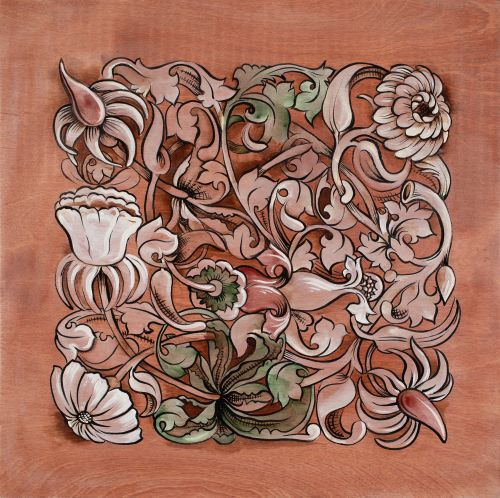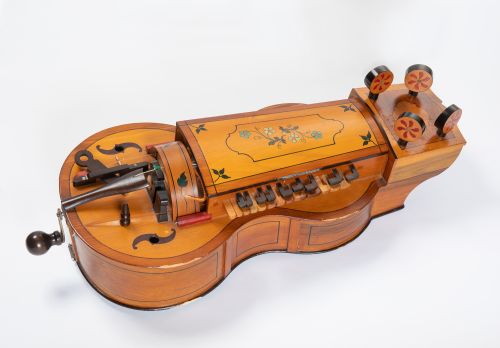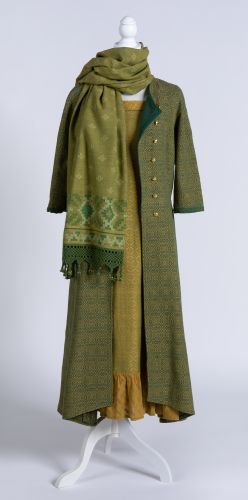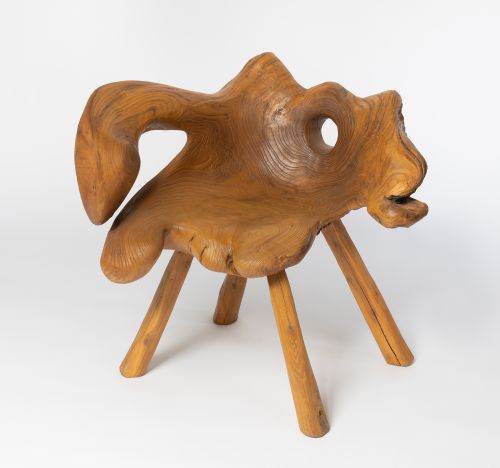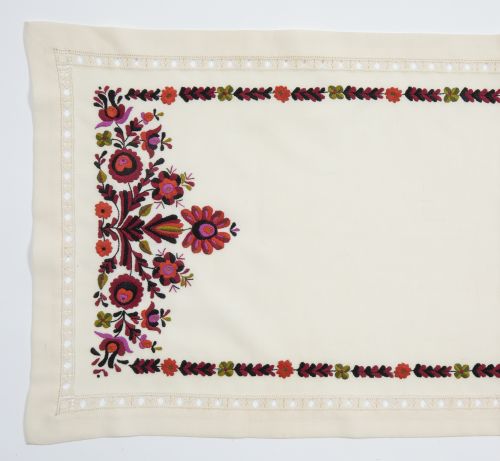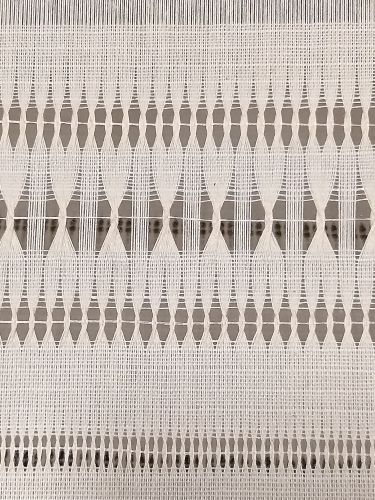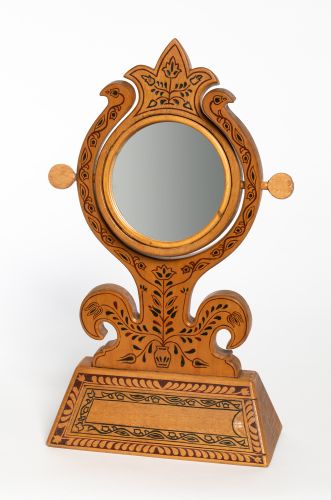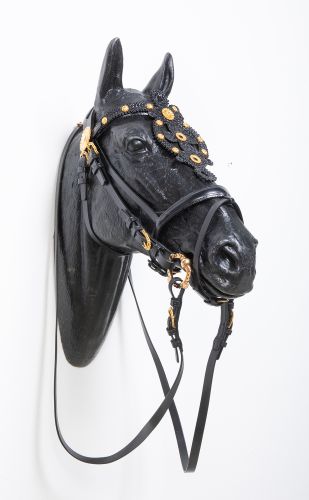Gyula Németh and his students
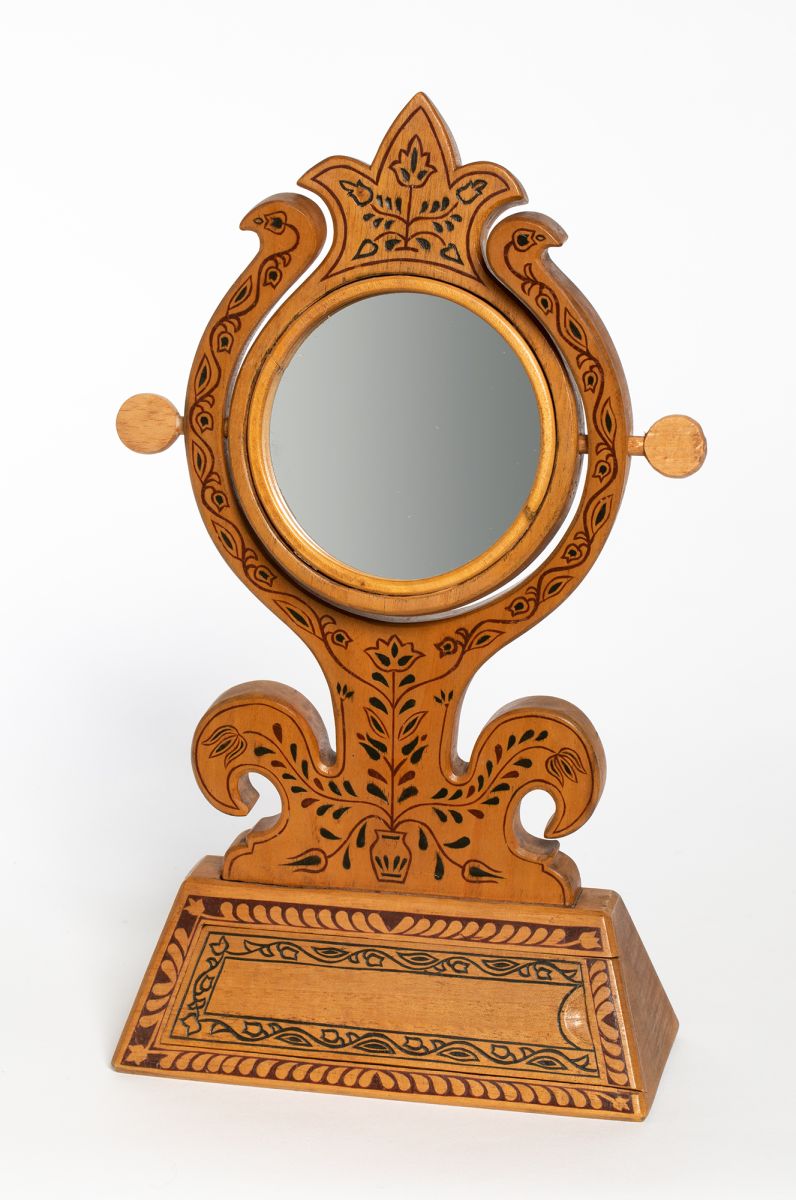
NÉMETH Gyula
Wooden box with mirror / 1978
maplewood, colour wax inlay decoration
Photo: SULYOK Miklós
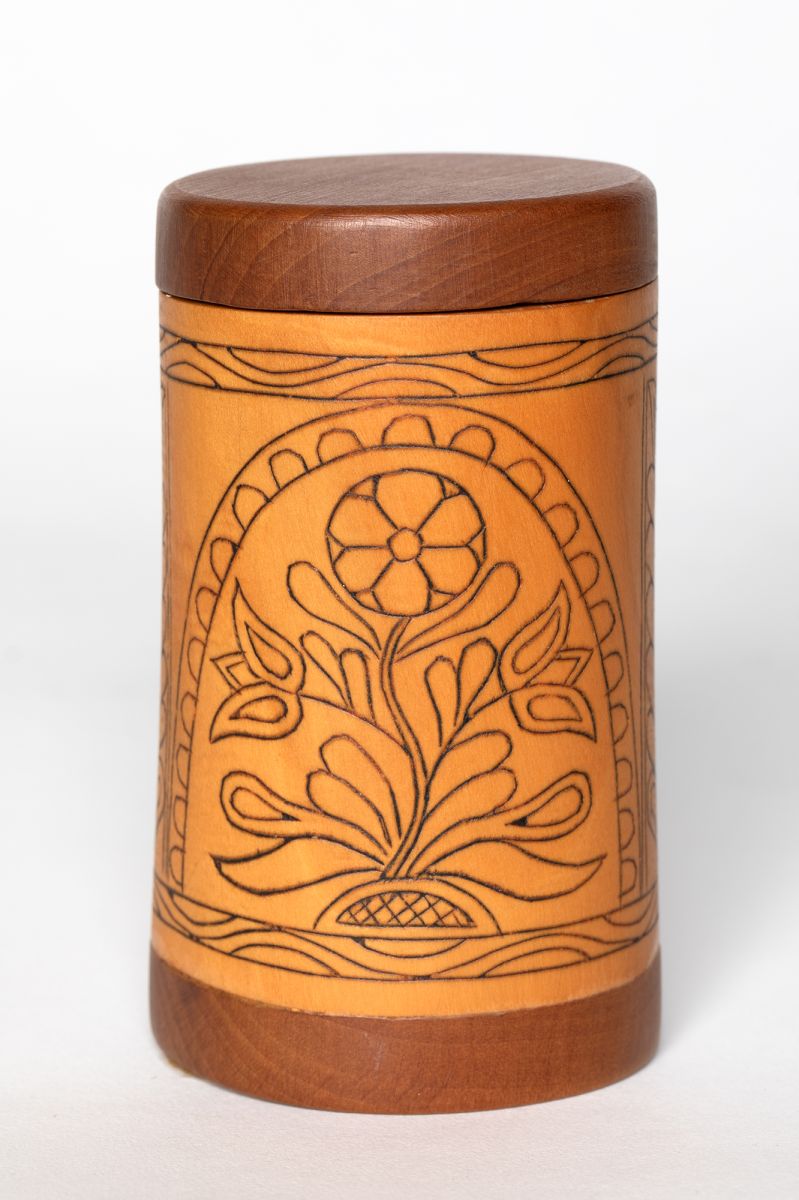
BARTI Krisztián
Spice holder / 2012
elder wood, pear wood, engraving
Made for the National Competition for Young Crafsmen
Photo: SULYOK Miklós
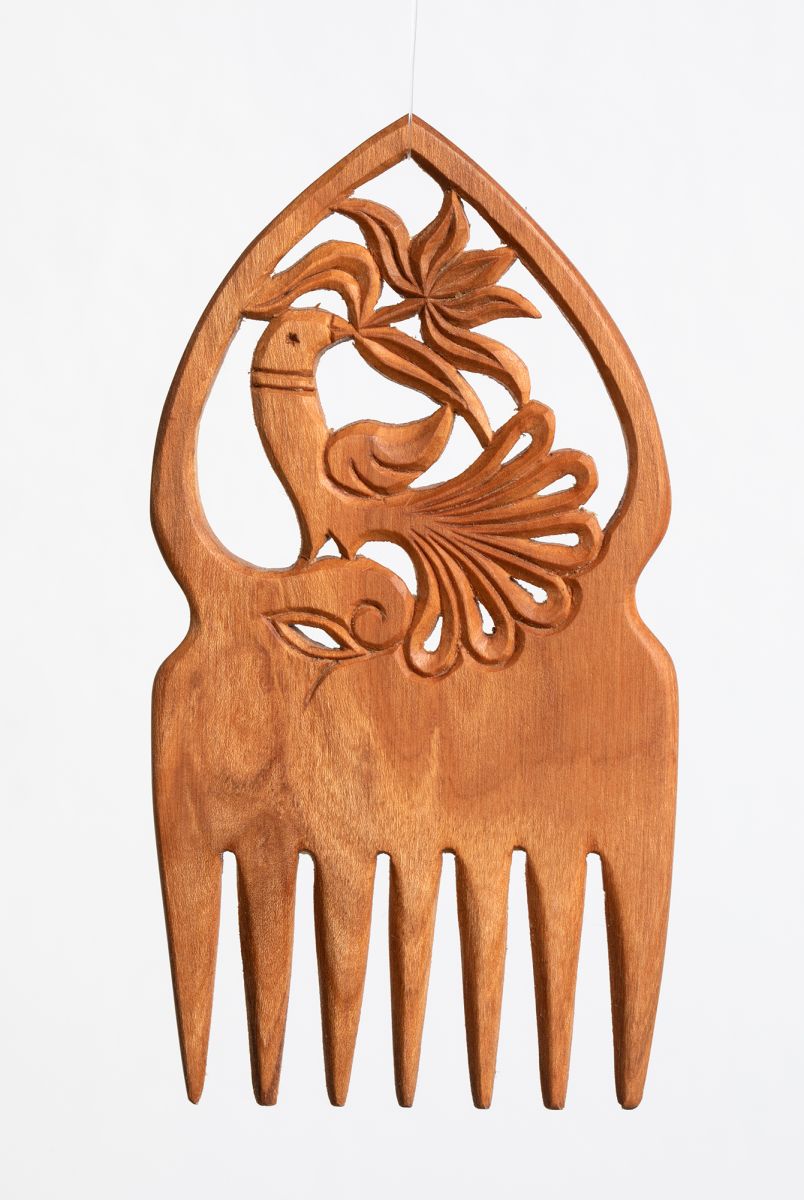
DÉNES Tibor
Comb / 2023
cherry wood, openwork carving
Photo: SULYOK Miklós
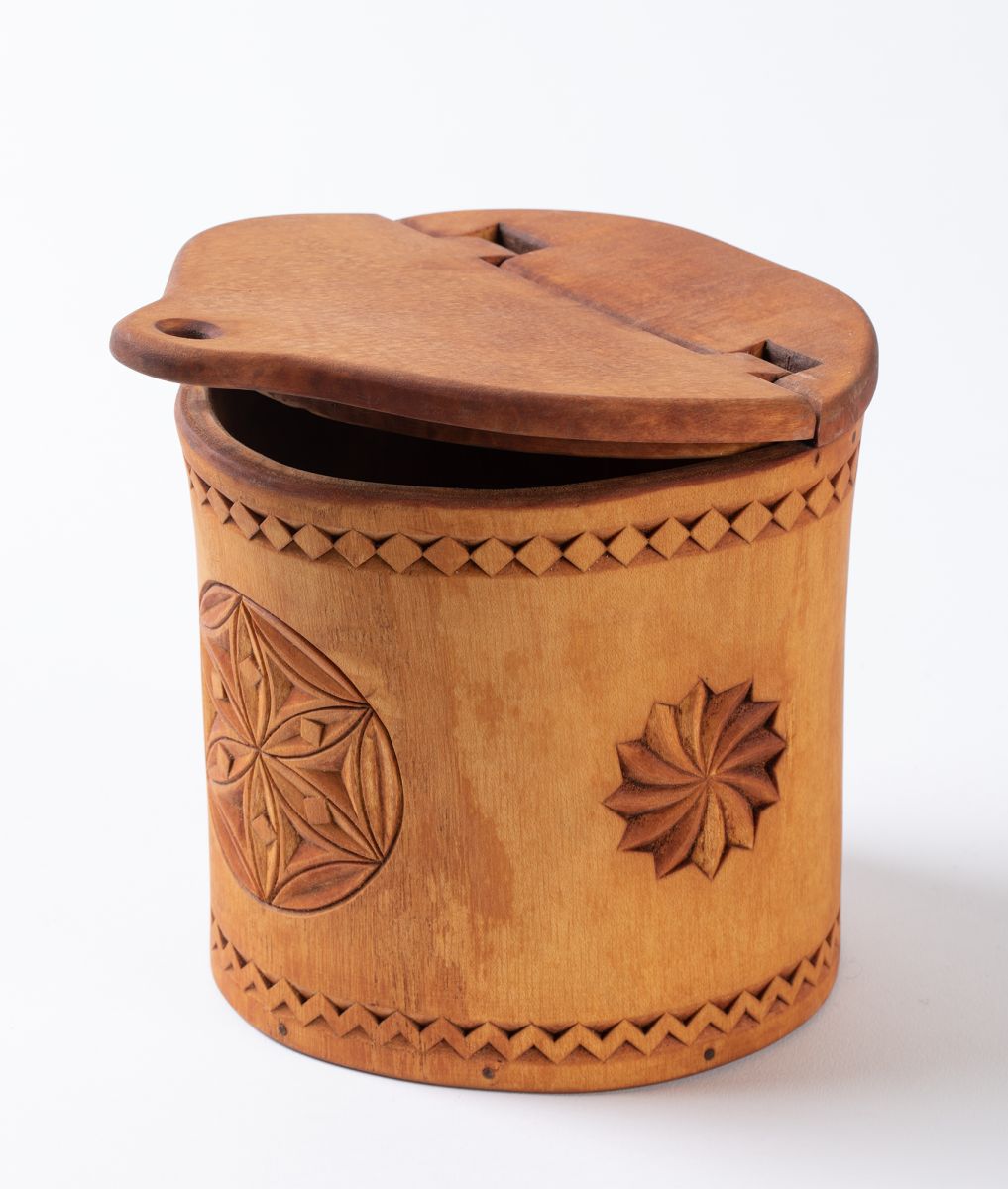
JOVÁN János Attila
Jar for ewe’s cheese / 2013
limewood, notched carving
Photo: SULYOK Miklós
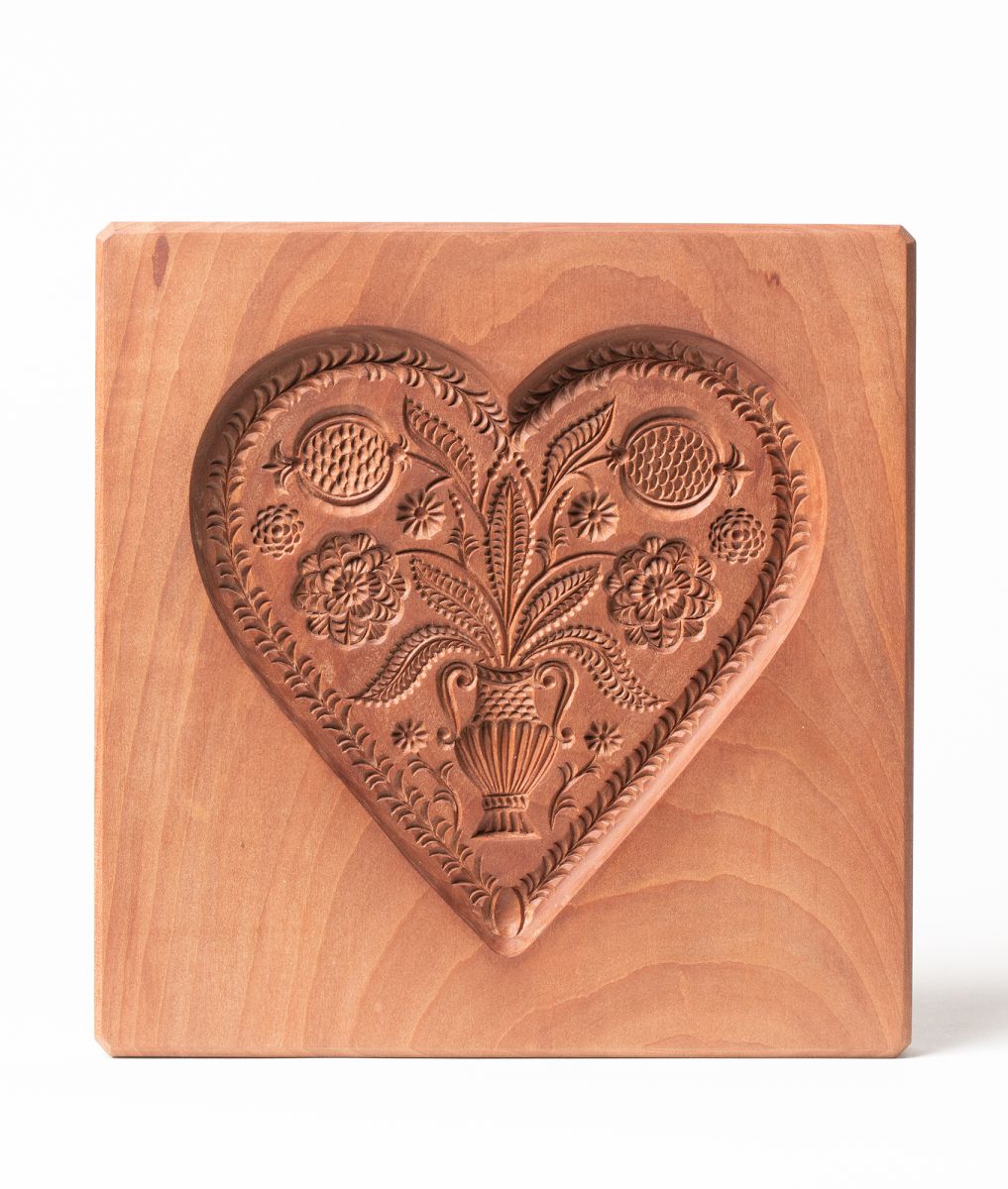
HARASZTOVICS Róbert
Wooden mould for heart-shaped gingerbread / 2019
pear wood
Photo: SULYOK Miklós
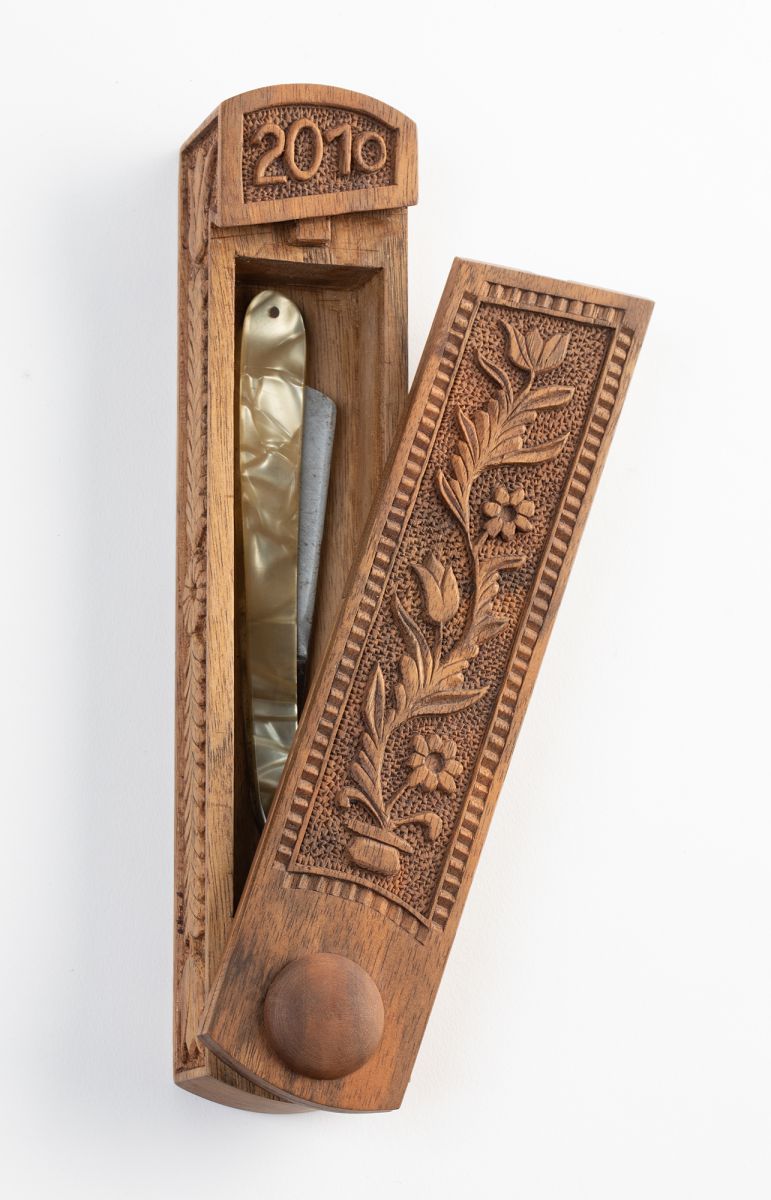
LÁSZLÓ Attila
Razor’s case / 2010
walnut wood, embossed carving
Photo: SULYOK Miklós
Gyula Németh was born in the village of Duka in the Kemenesalja region, into a family of farmers. In his childhood his imagination was shaped by his grandfather’s stories about shepherds, their woodcarvings and herding as well as about the adventures of Hussars and outlaws (betyárs) looking for justice. It was in 1975 that he frst met masters with solid professional skills in the areas of folk art – in working with bone and wood –, upon whose influence ten young men decided to found the Folk Art Studio of Velem. Te mentality represented by this studio and its guidance in creativity soon became an ex ample for young people engaged in traditional crafs. Gyula Németh has been regularly participating in creative camps and has been a leader of woodcarving workshops. He worked in France on a Cziffra Scholarship in 1983. He won the title of Young Master of Folk Art in 1977. In his workshop he makes shep herd’s carvings out of wood and bone, for which he uses the decorative tech niques characteristic of the West Transdanubian region of Hungary, such as wax-inlay and engraving. His lasting achievements include the use of natural materials and folk art in children’s playgrounds in housing estates and urban environments dominated by concrete. His objects have been regularly includ ed in folk art exhibitions for decades. He ofen holds workshops promoting folk traditions and folk culture. He passes on his knowledge and experience to the younger generation with real dedication. He runs workshops for children and adults organised by the Cultural Centre and Library of Kemenesalja. He won the title of Master of Folk Art in 2009.
Many of his students are now outstanding masters of folk art. Róbert Harasztovics became enamoured with woodworking as a small child. He learned the techniques of Transdanubian shepherd carving from his master, Gyula Németh, a woodcarver from Celldömölk. He mainly makes traditi onal furniture and also carves gingerbread beetles in his own workshop in Ostffyasszonyfa. At the age of 19 he was named Young Master of Folk Art, and was nominated for the Prima Award of Vas County in 2021. He has participated successfully in several national exhibitions and competitions. His wife, Lívia Harasztovicsné Dénes, makes doll-shaped honey-cake with the beetles carved by her husband. Tey have already won a gold certifcate together at the 2021 Living Folk Art National Competition. Tibor Dénes is a cabinet-maker, carpenter and woodcarver. He won the title of Young Master of Folk Art in 1986. János Attila Jován is a woodcarver, cabinet-maker and a maker of shepherd’s carvings. He received the title of Young Master of Folk Art in 2009. Attila László is a cabinet-maker and woodcarver. He has won frst and second places in many domestic and international competitions. Krisztián Barti is a wood industry technician doing cabinet-making and woodcarving work.
